

Our People
Advisory Panel
Green Cross Australia is lucky enough to be supported by the
array of dedicated, enthusiastic, experienced individuals who make
up our Advisory Panel.
These talented people share their advice and expertise to make our
projects successful and provide a valuable support element to
Green Cross Australia.
Find out more about our Advisory Panel, their experience and their
interest in Green Cross Australia by selecting a name below.
- Cam Mackenzie
- Cheryl Desha
- Damian Morgan
- Di Morgan
- Heather Jeffery
- Ian Dunlop
- Ian Lowe
- James Bradfield Moody
- James Woods
- Jelenko Dragisic
- John Cherry
- Judy Magub
- Kylie Ahern
- Louise Erbacher
- Max Standage
- Marianne Hanson
- Molly Harriss Olson
- Neil Davidson
- Noel Preston
- Philip Bangerter
- Phillip Toyne
- Richard Sanders
- Ros Kelly
- Sonia Caton
- Tony Fry
- Tor Hundloe
- Wilson da Silva
- Anna Brazier
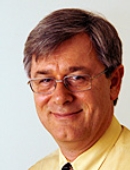
Cam Mackenzie
Environmental Sustainability, Education Queensland
Environmental Sustainability, Education Queensland
In 1980 Cam was appointed the Principal of the Townsville/Paluma Environmental Education Centre until 1987. From 1988 he was a marine studies and biology teacher for three years in a high school on the north side of Brisbane.
Cam was then appointed the principal of the Bunyaville EEC in 1991 until 2005. He is currently the Principal Advisor - Environmental Sustainability for the Department of Education, Training and the Arts. This role includes the development and management of the Queensland Environmentally Sustainable Schools Initiative (QESSI).
Since 2003 Cam has represented Education Queensland on the National Environmental Education Network (NEEN) and also Australian on the international Environment and Schools Initiative (ENSI) network.
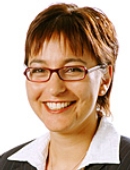
Cheryl Desha
The Natural Edge Project
The Natural Edge Project
Cheryl is a co-author of The Natural Advantage of Nations (Earthscan 2005) and is the Education Director of The Natural Edge Project (TNEP).
Cheryl graduated in Environmental Engineering (First Class Honours) with the University Medal from Griffith University. She worked in an international consulting engineering firm for four years, also undertaking eight months work placement within the Queensland government. Cheryl joined TNEP in 2003 and shortly after negotiated a formal collaboration between TNEP and Griffith University to engage as a Lecturer in the Griffith School of Engineering. In 2007, this relationship extended to a hosting partnership with TNEP moving from Engineers Australia to Griffith University's Centre for Environmental Systems Research. In 2005 Cheryl was selected as the Engineers Australia Young Professional Engineer of the Year.
Cheryl is focusing on developing the TNEP initiatives on embedding sustainability into engineering curricula, and in 2006, began her PhD at Griffith University, Australia with Dr Philip Williams, developing a rapid transition strategy for curriculum renewal.
Cheryl also founded the Queensland node of the Sustainable Living Challenge at Griffith University, which is hosted by the Science, Environment, Engineering and Technology Group.
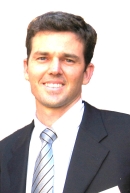
Damian Morgan
Managing Director, Morgan Productions
Managing Director, Morgan Productions
Damian Morgan is a marketing consultant and business journalist. He advises several national companies on their marketing programs (advertising, PR, government relations, CRM) and reports on business and media issues for several media outlets including Radio 4BC and the ABC.
He worked previously as a broadcaster, executive producer, and reporter for current affairs radio and television programs in Sydney, Canberra and Brisbane.
He is a candidate for an MBA from UQ Business School and has post graduate qualifications in media from the Australian Film Television and Radio School (AFTRS).
He is a fellow of the St James Ethics Centre, a graduate of the Sir Vincent Fairfax Leadership Program, and sits on the board of the Brisbane City Council’s CitySmart Taskforce.
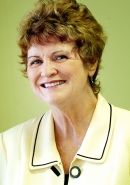
Di Morgan
Former Chief Executive Officer, Volunteering Queensland
Former Chief Executive Officer, Volunteering Queensland
Diane has over 35 years experience working with community organisations and volunteers as a manager, board director, educator, counsellor and volunteer herself.
She has a social welfare and counseling qualifications and a Graduate Diploma in Human Service Management from the Queensland University of Technology.
Diane has been the Chief Executive Officer of Volunteering Queensland since 1987, and was the Foundation President of the national volunteering peak organisation, the Australian Association for Volunteering which is now Volunteering Australia.
She has led the development of regional Volunteer Resource Centres throughout Queensland and has been involved in the development of standards and accredited training courses for volunteers and volunteer managers, as well as policy and procedures for the involvement of volunteers in nonprofit organisations.
Diane also served for 10 years on the Board of Directors for the International Association for Volunteer Effort (IAVE) and chaired IAVE's Standing Committee for Worldwide National Volunteer Centres during that time and played an integral role in lobbying the United Nations for the 2001 International Year of Volunteers (IYV) and the development of the UN endorsed Universal Declaration on Volunteering.
Diane has participated in volunteer policy development at international, national and state level and is committed to volunteering as an integral part of community capacity building and social inclusion in today's society.
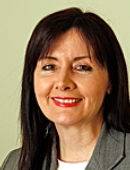
Heather Jeffery
General Manager, Public Affairs of Virgin Blue Airlines
General Manager, Public Affairs of Virgin Blue Airlines
Heather Jeffery was appointed General Manager, Public Affairs, of Virgin Blue Airlines in December, 2004.
She has two decades of airline experience from the Australian and New Zealand aviation markets as well as a background in corporate and marketing communications. Heather is part of the Virgin Blue senior management team responsible for the airline group's strategic communications direction including internal and external communications, public relations, philanthropy and social responsibility.
She holds a Bachelor of Business (Communication) QUT and has acted as a private consultant to organisations in the aviation, tourism and financial services sectors.
Heather commenced her Public Affairs career with ICI Australia Ltd (now Orica) in 1981. She entered the aviation industry as Public Relations Adviser, Trans Australia Airlines, later Australian Airlines. She was Public Affairs Manager Australia for 13 years and Group Public Affairs Manager Ansett Australia.
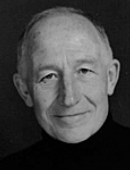
Ian Dunlop
Advisor, Governance and Sustainability
Advisor, Governance and Sustainability
Ian Dunlop has wide experience in energy resources, infrastructure, and international business, for many years on the international staff of Royal Dutch Shell. He has worked in oil, gas and coal exploration and production, in scenario and long-term energy planning, competition reform and privatization.
He chaired the Australian Coal Association in 1987-88, and the Australian Greenhouse Office Experts Group on Emissions Trading in 1998-2000. From 1997 to 2001 he was CEO of the Australian Institute of Company Directors.
Ian has a particular interest in the interaction of corporate governance, corporate responsibility and sustainability.
Originally an engineer, with an MA from the University of Cambridge, he is a Fellow of the Australian Institute of Company Directors, the Australasian Institute of Mining and Metallurgy and the Energy Institute (UK), and a Member of the Society of Petroleum Engineers of AIME (USA). He also chairs the Australian National Wildlife Collection Foundation (CSIRO) and is a deputy convenor of ASPO-Australia (the Association for the Study of Peak Oil).
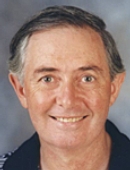
Ian Lowe
President, Australian Conservation Foundation
President, Australian Conservation Foundation
Ian Lowe AO is emeritus professor of science, technology and society at Griffith University in Brisbane and holds adjunct appointments at three other universities.
He is a Fellow of the Australian Academy of Technological Sciences and Engineering, a Fellow of the Queensland Academy of Arts and Sciences, and President of the Australian Conservation Foundation.
He wrote a weekly column for New Scientist for 13 years and received the 2002 Eureka Prize for Promotion of Science.
He also won the Australian Prime Minister's Environmental Award for Outstanding Individual Achievement and the Queensland Premier's Millennium Award for Excellence in Science.
He directed Australia’s Commission for the Future in 1988 and chaired the advisory council that produced the first national report on the state of the environment in 1996.
He helped develop the framework for the UNEP Global Environmental Outlook reports and has acted as a referee for the Inter-governmental Panel on Climate Change, the Millennium Assessment and the International Geosphere-Biosphere Program.

James Bradfield Moody
General Manager, International Development at the CSIRO
General Manager, International Development at the CSIRO
James Bradfield Moody is currently the General Manager, International Development at the CSIRO (formerly Director, Divisional Business Strategy at the CSIRO Division of Land and Water, the largest water research and development organisation in Australia).
James sits on a number of company boards, including the Brisbane Institute and the National Australia Day Council, and is on advisory boards of the Bureau of Meteorology and the Australian Bureau of Statistics.
James was also a member of the Science and Technology delegation to the UN World Summit on Sustainable Development in 2002 and was a member and executive secretary of the taskforce on Science and Technology for the Millennium Development Goals.
James was also chosen as one of the World Economic Forum's Global Leaders of Tomorrow and one of the Top 100 most influential engineers in Australia. He was one of the Financial Review Boss Magazine's Young Executives of the Year in 2007.
James is passionate about the supporting role that young socially conscious businesspeople can play in society and believes that issues of sustainability and environmental awareness are only going to become more important in society.
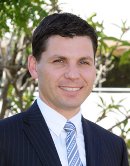
James Woods
Manager New Business Strategy, QR Passenger
Manager New Business Strategy, QR Passenger
James Woods is Manager New Business Strategy within QR Ltd's passenger subsidiary business. Before taking up this role in November 2008 he held a range of strategy, marketing and communications management positions with Origin, Energex and Ergon Energy. This included managing Energex's earth'schoice renewable energy program - one of Australia's most successful GreenPower products.
James joined the energy industry in 2001 after three years as a Ministerial Adviser with the Australian Federal Government and a decade as a journalist with News Limited.
He holds a Master of Business Administration (Executive) and a Bachelor of Arts (Journalism) from the University of Queensland in Brisbane.
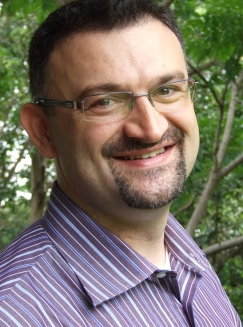
Jelenko Dragisic
Chief Executive Officer, Volunteering Queensland
Chief Executive Officer, Volunteering Queensland
Jelenko is currently the CEO of Volunteering Queensland. He has a BA in Humanities and International Studies, and extensive experience in management and administration with over 15 years experience in private, public and not for profit sectors.
In his most previous role Jelenko spent 11 years with
Australian Red Cross, including five years as Regional Manager,
South-East Qld.
Jelenko dedicated considerable time on projects
assisting refugees in resettlement, improving services to the
elderly living in isolation and youth and children in
need.
Jelenko also has significant experience in
volunteer management, having worked with thousands of volunteers
across Queensland.
Most recently Jelenko led a team of volunteers in
assisting local communities in Far North Queensland affected by
Cyclone Larry in March 2006.
Having lived, worked and studied in several countries over
the years he has developed a strong interest in cross cultural
engagement.
Currently, Jelenko is implementing the Collaborative
Alliance Model, a new strategy he has developed for use in cross
sector partnerships.
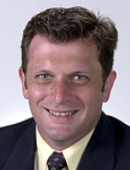
John Cherry
Chief Executive Officer, Queensland Farmers' Federation
Chief Executive Officer, Queensland Farmers' Federation
John Cherry has been the Chief Executive Officer of the Queensland Farmersí Federation since July 2005.
Prior to that, he served as a Senator for Queensland from 2001 until 2005, chairing the Senate Environment, Communications and the Arts References Committee.
He has also worked as an economic policy adviser, industrial advocate and journalist.
He grew up in the rural Queensland town of Boonah, and has degrees in law, economics and public administration.
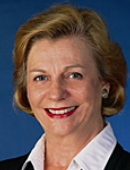
Judy Magub
Rotary International
Rotary International
Judy Magub has a background in Health and has served as a Brisbane City Councilor for 13 years. She has been a Rotarian for almost 20 years and has served as District Governor and now undertakes international roles. She is currently Rotary's representative in Australia for the Rotary Peace Fellow program in Peace and Conflict Resolution.
In 2006 Earth Dialogues was held as part of the Brisbane Festival. At the time I was the Lord Mayor’s spokesman for both the Arts and the Environment. The Dialogues were a great success and I believe a turning point for many people in Brisbane in understanding and participating in the debate on Climate Change and other significant global issues affecting the environment and peace in our world.
I have continued my support of Green Cross as I believe my experience of 13 years as a Councillor in the Brisbane City Council and almost 2 decades serving the community through Rotary International, I am in a position to assist in ensuring that Green Cross remains community based and that its messages are such that the community can understand and relate to.
I believe that although we depend on the scientific information and debate, the responsibility for addressing water, fuel, peace, climate change and other environmental issues rests with each person in each neighbourhood in each city and town in Australia.
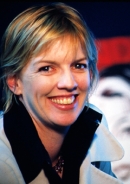
Kylie Ahern
Chief Executive Officer, Luna Media
Chief Executive Officer, Luna Media
Kylie is the CEO of the Sydney publishing company Luna Media and a co-founder of G: The Green Lifestyle Magazine, a practical and positive guide to suitanable living that is Australia’s first carbon neural magazine.
Having started her career at IPC Magazines in Britain, she went on to several senior publishing roles in Australia, including Marketing Director at FPC Magazines, Group Circulation Manager at ACP Magazines and Publisher at Yaffa Publishing.
She has lead Luna Media to a win of 26 awards across editorial, publishing and marketing.
Her own awards include Consumer Magazine of the Year and Best Consumer Magazine Launch in 2007 (both for G Magazine), as well as Best Small Publisher for Luna Media.
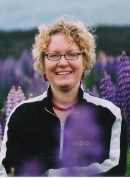
Louise Erbacher
Louise first became involved with sustainability issues after volunteering at the Asia Pacific Earth Charter Conference held in Brisbane in 2001, where she discovered the all-encompassing nature of the Earth Charter document. Unlike any other international charter, the Earth Charter manages to blend peace, justice and ecological sustainability so that all are in equal focus and Louise has relished the opportunity to work simultaneously for peace, justice and ecological sustainability.
Since that time, Louise has been a committee member of Earth Charter Australia, a Queensland representative for Catholic Earthcare Australia and the Education Co-ordinator for Brink Adventures. As a non-profit organisation, Brink Adventures follows the worldwide expedition of the Brink Expedition Team, who have been cycling and sailing around the world since 2002, avoiding the use of fossil fuels wherever possible. Since 2002, Louise has co-ordinated the development of online curriculum units whose focus is to transform the values of the Earth Charter into action by raising awareness of social and environmental issues . At the Earth Charter Conference in Amsterdam in 2005, Louise and the other members of Brink Adventures were awarded the International Earth Charter Award "in recognition of outstanding efforts in promoting a more just, sustainable and peaceful world, using the Earth Charter as a guide. The story of Brink Adventures was published in the 2005 edition of "The Earth Charter in Action".
Louise continues to work with the Earth Charter in education, as she firmly believes in lifelong learning and the need to empower the next generation to take responsibility for the creation of a more peaceful, just and sustainable world. In 2005, Louise contributed to the development of Earth Charter International's guidebook for teachers "Bringing sustainability into the classroom" and she also organised the inaugural Earth Charter Youth Leaders Conference. In collaboration with staff from Education Queensland and the Brisbane Festival, Louise developed the program for the 2006 Earth Dialogues Education Day for schools across Queensland. In 2007, Louise worked for Education Queensland to develop a framework on active and informed citizenship, based on the values and principles of the Earth Charter and in the initial set-up phase of Green Cross Australia, Louise was employed as a Project Officer.
In 2008, while working as a teacher, Louise continues to volunteer with a number of organisations helping to promote peace, justice and ecological sustainability and to empower her students to transform the values of the Earth Charter into action.
Louise first became involved with sustainability issues after volunteering at the Asia Pacific Earth Charter Conference held in Brisbane in 2001, where she discovered the all-encompassing nature of the Earth Charter document. Unlike any other international charter, the Earth Charter manages to blend peace, justice and ecological sustainability so that all are in equal focus and Louise has relished the opportunity to work simultaneously for peace, justice and ecological sustainability.
Since that time, Louise has been a committee member of Earth Charter Australia, a Queensland representative for Catholic Earthcare Australia and the Education Co-ordinator for Brink Adventures. As a non-profit organisation, Brink Adventures follows the worldwide expedition of the Brink Expedition Team, who have been cycling and sailing around the world since 2002, avoiding the use of fossil fuels wherever possible. Since 2002, Louise has co-ordinated the development of online curriculum units whose focus is to transform the values of the Earth Charter into action by raising awareness of social and environmental issues . At the Earth Charter Conference in Amsterdam in 2005, Louise and the other members of Brink Adventures were awarded the International Earth Charter Award "in recognition of outstanding efforts in promoting a more just, sustainable and peaceful world, using the Earth Charter as a guide. The story of Brink Adventures was published in the 2005 edition of "The Earth Charter in Action".
Louise continues to work with the Earth Charter in education, as she firmly believes in lifelong learning and the need to empower the next generation to take responsibility for the creation of a more peaceful, just and sustainable world. In 2005, Louise contributed to the development of Earth Charter International's guidebook for teachers "Bringing sustainability into the classroom" and she also organised the inaugural Earth Charter Youth Leaders Conference. In collaboration with staff from Education Queensland and the Brisbane Festival, Louise developed the program for the 2006 Earth Dialogues Education Day for schools across Queensland. In 2007, Louise worked for Education Queensland to develop a framework on active and informed citizenship, based on the values and principles of the Earth Charter and in the initial set-up phase of Green Cross Australia, Louise was employed as a Project Officer.
In 2008, while working as a teacher, Louise continues to volunteer with a number of organisations helping to promote peace, justice and ecological sustainability and to empower her students to transform the values of the Earth Charter into action.
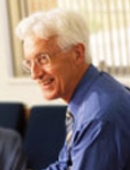
Max Standage
Pro Vice Chancellor, Griffith University
Pro Vice Chancellor, Griffith University
Professor Max Standage was born in New Zealand in 1947. He was educated at the University of Otago where he was awarded his Bachelor of Science and Doctor of Philosophy degrees. After a period of postdoctoral work in the United Kingdom, he joined Griffith University in 1976 as a Lecturer. He was appointed to a Personal Chair in 1992. He was Dean of the Faculty of Science and Technology from 1991 to 1996 and he was Acting Deputy Vice Chancellor (Research) during 1996. He has since held a number of senior management positions at Griffith University at Pro-Vice Chancellorial level with responsibilities for the Health and Science Groups, and the Gold Coast and Logan campuses. He is currently Pro-Vice Chancellor (Community Partnerships) and Provost Gold Coast and Logan campuses.
He is a Fellow of the Australian Institute of Physics and has served on the Australian Research Council as a member of the Physical Sciences and Mathematics Panel and chair of the Instrumentation and Scientific Instruments Priority Panel. Professor Standage’s research interests lie in the area of quantum physics, in particular the use of laser techniques to probe collision processes at the atomic level. He has published extensively on laser physics, electron-atom collision physics and atom optics.
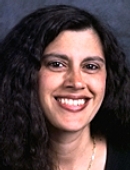
Marianne Hanson
Rotary Centre for International Studies in Peace and Conflict Resolution
Rotary Centre for International Studies in Peace and Conflict Resolution
Dr Marianne Hanson is a Reader in International Relations and has also been Director of the Rotary Centre for International Studies in Peace and Conflict Resolution at the University of Queensland (UQ). Her studies were undertaken at UQ and Oxford University. Marianne's research focuses on nuclear arms control, international law and humanitarian issues.
She is particularly interested in the human security effects of weapons proliferation, warfare and poverty. Dr Hanson is also a consultant and lecturer to the Australian Defence College and many other Australian universities. Her practical involvement in international relations includes consulting with numerous non-governmental organisations in the areas of peace, arms control and development, including the Advisory Board for the Medical Association for the Prevention of War's special project, the International Campaign for the Abolition of Nuclear Weapons. She has addressed the United Nations in New York and works closely with various government agencies and Track Two organisations in the area of nuclear arms control.
Marianne Hanson's role in Green Cross Australia is strongly motivated by her wish to be, in addition to her teaching and research, practically involved in international affairs. Given that environmental issues can be closely related to factors such as conflict, poverty, and weapons proliferation, she is especially keen to contribute to GCA's program in Australia and abroad.
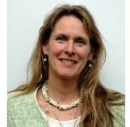
Molly Harriss Olson
Director, EcoFutures
Director, EcoFutures
Ms Olson is a Director of Eco Futures Pty Ltd, an Australian-based international policy firm working on building sustainable strategies with business, government and civic leaders. Ms Olson is the Convenor of the National Business LeadersForum on Sustainable Development, and an internationally recognised leader on sustainability.
Between 1995-97, Ms Olson was President and CEO of The Natural Step, USA, a non-profit environmental education organisation working with business leaders. She was also the US representative on the steering committee of Sweden-based The Natural Step, International. Ms Olson worked in the White House as the Founding Executive Director of the President's Council on Sustainable Development. Appointed by President Clinton in 1993, the 25 member Council was a groundbreaking partnership whose membership came from, high-ranking representatives of industry, government, environment, labour and civil rights organisations. The Council was commissioned to develop a broad based national action strategy on sustainable development, and in March 1996, submitted its report, Sustainable America: A New Consensus, to President Clinton.
Ms Olson brought Al Gore, to Australia for his first visit as the keynote at the National Business Leaders Forum on Sustainable Development in 2003. Ms Olson was the sustainability expert for the Opening Plenary of the World Economic Forum's 2000 meeting in Davos, and has a significant speaking role on a variety of international speaking platforms. She was the Chair of King Carl Gustaf's Business Leadership and the Environmental Symposium, Stockholm, Sweden 1996, and the Myerhoff Visiting Scholar for Global Civic Responsibility, Goucher College, Baltimore, MD. "Business Class" Magazine identified Ms Olson as a "Woman to Watch into 2000". She serves on the Boards of the Green Building Council, The Australia Institute, and Mary Mead (Creating a Brighter Future for Children). She is Chair of the Editoral Advisory Board of Ecos; Magazine (CSIRO Publishers), on the Editorial Board of G8; (For a Lifestyle that won't Cost the Earth) Magazine, and has previously served on the Boards of the Global Action Plan, Clean up the World, Clean up Australia, Australian Building Energy Council, the Environment Management Industry Association of Australia, The Australian National Committee for the Earth Charter, and the International Advisory Council for the Foreign Policy Association (NY).
Ms Olson earned her joint Bachelor degrees in Environmental Studies and Economics with Thesis honours from the University of California, Santa Cruz. She was a distinguished Bates Resident Scholar at Yale University where she earned a Masters in Environmental Policy from the School of Forestry and Environmental Studies. In January 1995, Ms Olson was selected to be a member of the World Economic Forum's Global Leaders for Tomorrow program, made up of individuals worldwide born after 1950, who have distinguished themselves as recognised leaders in the world community.
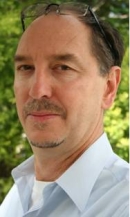
Neil Davidson
Sustainability Broker, Collaborative Innovation Systems
Sustainability Broker, Collaborative Innovation Systems
I am a transformative thinker and trans-disciplinary change agent, and one of a growing network of transformative systems thinkers looking to create globally ethical, integrated whole-systems responses to issues such as Climate Change, Peak Oil, social injustice and biodiversity loss.
I have science qualifications and experience in industry, NGO’s and local and state government, including initiating and running a Sustainable Technology Development Program and a Lighting Innovation Centre. I am an advisor to the Griffith Centre for Innovative Conservation Strategies.
I have a keen interest in complexity science and human systems dynamics, especially with respect to my concept of ‘facilitating emergence’ through identifying and bringing the right players together to create common visions and transition ‘scripts’ in complex areas. I aim to catalyse collaborative development of systems-based, trans-disciplinary win:win:win business outcomes, industry clusters and centres, and integrated approaches to improve business and social outcomes at multiple scales. This often requires bridging between big picture conceptual and on-the-ground outcomes.
I am so concerned that business as usual approaches will not achieve urgently needed global outcomes that I currently work as an unsolicited social entrepreneur with government, industry, academia and community in numerous ventures with complex value-chains. These include:
- creating indigenous enterprise opportunities that unlock potential and assist re-localisation; across industry, government, faith and indigenous communities;
- developing models for rehabilitation and asset management of the Traveling Stock Route network, integrating biodiversity, cultural, rural enterprise and carbon capture outcomes;
- assisting a network to create a Systems Design Lab to design the intentional community models of the future towards which program resources can be aligned;
- facilitating sustainable (renewable energy) urban transport technology development to reduce pollution, avert some peak oil impacts and improve urban amenity; and
- catalysing and advising on community development within ecological carrying capacity.
I hope Green Cross Australia can help bridge the yawning gulf between those with the resources and those with the needs, by supporting the direction and ideas that might give us a viable future.
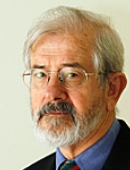
Noel Preston
Ethicist
Ethicist
Dr Noel Preston AM is an ethicist and adjunct Professor at Griffith University. Formerly he taught at QUT. Dr Preston is a committee member of Earth Charter Australia, a regular commentator on social ethics and author of Understanding Ethics and many other publications. A retired Uniting Church Minister, he has held several social justice positions across his career including as the inaugural Director of the Unitingcare Centre for Social Justice.
My work as an ethicist and social justice advocate across the past 3 or 4 decades has brought me logically to an association with the international non-Government organization, Green Cross Australia. For the past 8 years I have been closely associated with the Earth Charter initiative. The Earth Charter is a global ethics statement which articulates the values needed if we are to build a global future based on social justice and sustainability. Green Cross International and the Earth Charter developed in close parallel and Green Cross affirms the Earth Charter as its values base.
It was my privilege to be on the Speakers' panel at the 2006 Brisbane Earth Dialogues chaired jointly by President Mikhail Gorbachev and Queensland Premier Peter Beattie. This was a most informative and challenging occasion which inspired several of us to work closely to help bring to fruition the commitment of the Queensland Government and Brisbane City Council to help establish Green Cross in Australia. In the 2006 Aquinas Lecture ( "Ethics sans frontieres:the vocation of global citizenship") which I delivered at the Australian Catholic University subsequent to Earth Dialogues I spelt out a vision for the global culture change which I believe is consistent with the mission of Green Cross.
My hope for Green Cross Australia is that it will be instrumental in partnering with other organizations in projects that make a difference. Chiefly, I think the task of GCA is to be a catalyst in bringing together different sectors of our society and economy to ensure that Australia approaches challenges like climate change and the conflicts in our region with generous compassion and fairness. Along with this I believe one of our most important tasks is to promote dialogue toward values changes which will build community support for our politicians and decision makers to bring about the difficult changes which will be necessary for a sustainable future.
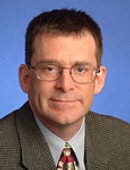
Philip Bangerter
Global Director of Sustainability, Hatch
Philip is currently the Global Director of Sustainability for Hatch, Brisbane.
He leads a small but global practice in sustainability, a group tasked with bringing sustainability principles to Hatch design and project management teams.
Philip is also responsible for Hatch’s technical and research alliance relationships in Australia, including The University of Queensland, The CSIRO, the Centre for Sustainable Resource Processing, of which he is Chair of the Industry Steering Committee and The Parker Centre.
Global Director of Sustainability, Hatch
Philip is currently the Global Director of Sustainability for Hatch, Brisbane.
He leads a small but global practice in sustainability, a group tasked with bringing sustainability principles to Hatch design and project management teams.
Philip is also responsible for Hatch’s technical and research alliance relationships in Australia, including The University of Queensland, The CSIRO, the Centre for Sustainable Resource Processing, of which he is Chair of the Industry Steering Committee and The Parker Centre.
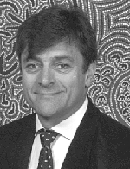
Phillip Toyne
Director, Ecofutures
Director, Ecofutures
Phillip is one of Australia's best known environmentalists. He was formerly Head of the Australian Conservation Foundation & Deputy Secretary of the Commonwealth Department of Environment.
From 1994-1997, Phillip was Deputy Secretary in the Commonwealth Department of Environment, where he played a major role in the international policy arena on issues such as biodiversity, sustainable development and climate change. Between 1992 and 1994 Phillip was a visiting Fellow at Australian National University, where he taught environmental law and policy, wrote the Book "The Reluctant Nation" and developed the national ABC Radio series based on the book.
Between 1986 and 1992, Phillip was Executive Director of the Australian Conservation Foundation, where he led successful campaigns on mining in Kakadu, the Wet Tropics, Antarctica, and began the long process of merging green and aboriginal partnerships. He also developed the National Land Care program with NFF head Rick Farley, a movement which has radically changed land use practices in Australia and which is now moving to Africa and America. Before ACF, Phillip spent 14 years in the desert, first as a schoolteacher in a remote aboriginal community at Haasts Bluff, and then as the first lawyer for the Pitjantjatjara aboriginal people. During that time, Phillip successfully negotiated the passage of the Pitjantjatjara Land Rights Act, and then led the negotiations for the traditional owners of Uluru (Ayres Rock) resulting in them receiving title to the National Park. The leaseback arrangement and the joint management arrangements for the Park were a world first, and are used as a model today around the world in reconciling indigenous and environment issues.
Phillip is President of the Australian Bush Heritage Fund and serves on the Lake Eyre Basin Coordinating Committee. He is a former member of the National Land Care Advisory Committee, the Genetic Manipulation Advisory Committee, Australian Population Council, the Prime Minister's Ecologically Sustainable Development Round Tables, and a Murray Darling Basin Commissioner.
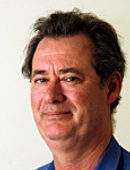
Richard Sanders
Quest 2025
Quest 2025
Richard Sanders is an ecological economist, futurist, environmental scientist and change agent who has delved deeply into the concept of sustainability for over 20 years.
He is a visionary systems thinker who has grappled with the questions of what the sustainable society would necessarily look like in principle (based on ecological and thermodynamic imperatives), the transitionary technical and social pathways necessary to get there, and the democratic political processes necessary to bring about such a transition.
Richard has been actively networking nationally and internationally in the quest for sustainability, focusing on the 'big picture' level and on clarifying the sustainability concept as objectively as possible to ensure that people are working in common purpose and not at cross purposes.
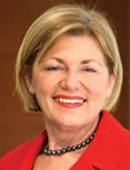
Ros Kelly
Ms Ros Kelly moved to Federal Parliament in 1980 after being elected to the ACT Legislative Assembly in 1974. Ros held several ministerial portfolios from 1987 through to 1994 including Minister for Defence, Science and Personnel; Minister for the Arts, Sport the Environment and Tourism and Minister for the Environment, Sport and Territories.
She has held several executive and non-executive directorships largely associated with managing the environment. She is also a non executive director with THIESS Pty Ltd.
Ros was a member of the International Advisory Council for Normandy Mining Ltd from 1995 - 2001 and has been Chair of the Minerals Council of Australia's External Advisory Group on Sustainability. Ros is also Chair of the National Breast Cancer Foundation.
Ros was awarded an Order of Australia in 2004 for her service to the community through promoting corporate environmental responsibility and fostering dialogue between business and conversation groups, to the Australian parliament and to women's health.
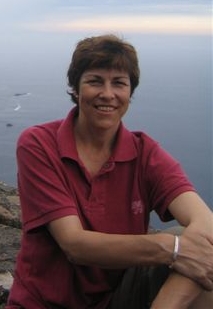
Sonia Caton
Hiking as a child in the Alleghany Mountains in the USA led to Sonia’s life long commitment to the environment.
She is also committed to human rights and believes that a national and international framework for responding to population displacement due to climate change is urgently required.
Sonia is qualified in law, political science and anthropology and has practiced criminal, administrative and immigration law in Australia for over 20 years.
She has worked in the private and community sectors, as well as for government. An ex-member of the Migration Review Tribunal and Social Security Appeals Tribunal, she has more recently specialised in refugee law.
She is active in law reform initiatives, lectures in law and sits on the board of a not-for-profit.
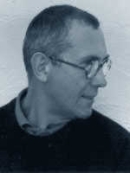
Tony Fry
Director, Team D/E/S
Director, Team D/E/S
A Director of Team D/E/S and founder of the EcoDesign Foundation, Tony Fry has acted as a consultant on sustainable design for clients such as BHP Steel, Toyota Australia, Gregory Industries, Future Generations consortium, NSW Public Works, Department of Urban Affairs and Planning (NSW), Department of Housing (NSW), Commonwealth Environment Protection Agency and the Institution of Engineers Australia.
Tony Fry is much sought after as a creative team leader, initiator, developer and critical reviewer of projects. Working across many design disciplines — architectural, industrial, information design, planning and engineering — he has a highly developed capacity for relational thinking and can quickly identify the important sustainability issues and potentialities of a project. He brings considerable practical and theoretical knowledge to consulting work, drawing on an impressive track record of published work including five major books. He has taught design and cultural theory in Britain, the United States, Hong Kong and Australia and holds a PhD in Cultural Studies in Design from the University of Birmingham. He has held positions as Adjunct Professor to the Faculty of Design, Architecture and Building at the University of Technology, Sydney and as a consultant on sustainable design to the School of the Art Institute of Chicago. Tony has conceptualised and managed major R&D projects; managed and judged many design competitions.
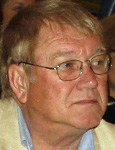
Tor Hundloe
Tor Hundloe is Professor of Environmental Management and Director of the Technology Management Centre, the University of Queensland. He is also Chair of the West Tropics Management Authority and has been in this position since November 1996. As a consequence, he spends about one week per month in Cairns. Other positions include: Chair of the Queensland Cleaner Production Taskforce; Member of the ANZECC Taskforce on Cleaner Production; Member of the Queensland Environmental Protection Council; Chair of the Fisheries Research and Development Corporation; Working Party of Fisheries Economics Statistics; Member of the Board of the CRC for Tropical Rainforest Ecology and Management (centred at James Cook University, Cairns); Member of the Commonwealth Science Minister's Working Party for the Marine Science and Technology Plan and Advisor to the Victorian Government's Fisheries Co-Management Council.
Until his resignation at the beginning of 1997, Professor Hundloe was Environment Commissioner with the Industry Commission. He was the first Environment Commissioner and served for about seven years. In that position he undertook a number of public inquiries. The major one was into Tourism and others included: new and advanced materials; tobacco growing and manufacturing; the environmental industries; water and waste-water disposal; economic aspects of greenhouse gases; electricity industry and recycling. Prior to his appointment to the Industry Commission, Tor Hundloe was Director of the Institute of Applied Environmental Research, Griffith University.
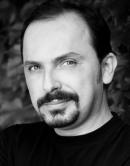
Wilson da Silva
Editor in Chief, Cosmos Magazine
Editor in Chief, Cosmos Magazine
Wilson da Silva is Editor-in-Chief of the science magazine Cosmos and Editorial Director of the publishing company Luna Media.
A former on-air reporter for ABC TV's Quantum science program, he has served as editor of the magazines Newton and 21C, was science editor of ABC Online, has been a foreign correspondent for Reuters, and is a former staff journalist on The Age and The Sydney Morning Herald.
The winner of 23 awards - including 2005 and 2006 Editor of the Year for his work on the Cosmos, and the 2000 Australian Film Institute Award for Best Documentary for te East Timor film, The Diplomat - he is the past president of the World Federation of Science Journalists.
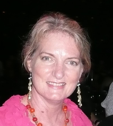
Anna Brazier
Bachelor of Special Education (Flinders University); Diploma of
Teaching- Early Childhood Education (Brisbane Kindergarten Teachers
College)
Anna is a Director of Teaching and Learning in Education Queensland
with responsibilities for Education for Environmental
Sustainability, Financial Literacy and the Arts. She is currently
Queensland representative on the Australian Children's Television
Foundation Board and member of the Non State Schools Accreditation
Board.
Anna led the student engagement component of the 2006 Brisbane
Festival resulting in the participation of over 10 000 students in
the Earth Dialogues Challenge program. The program included
regional Earth Dialogues Challenge workshops, an online education
site and the student delegation to the 2006 Brisbane Festival Earth
Dialogues. The program culiminated in the Earth Dialogues Education
day where over 500 students heard the closing address by Mikhail
Gorbachev.
Copyright © Green Cross Australia | Terms & Conditions | Privacy Policy
web design brisbane :: (zero)seven

